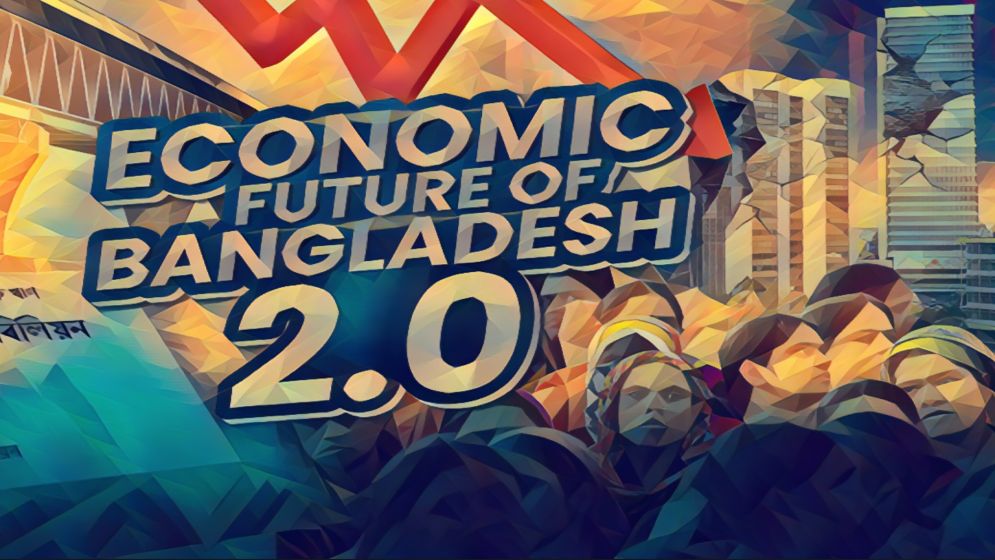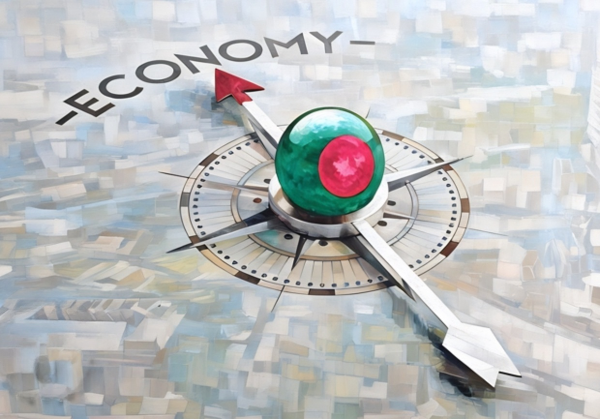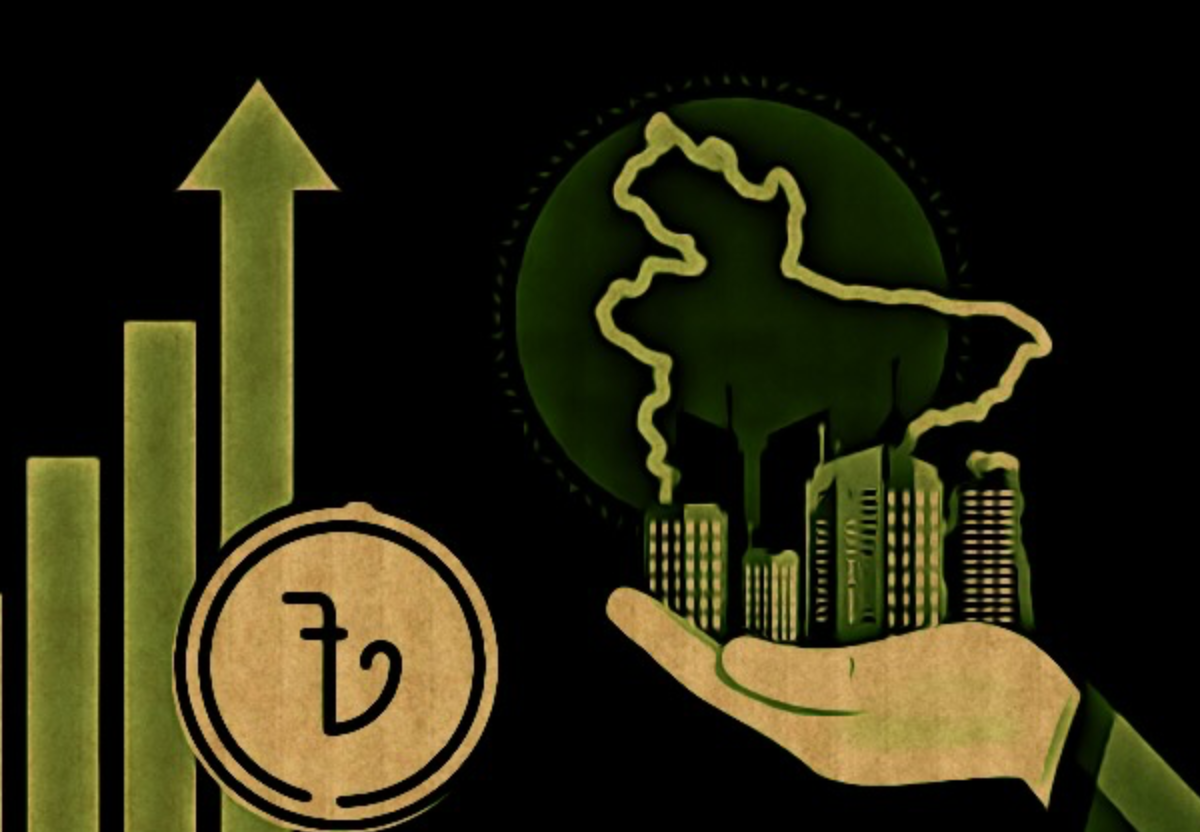How can economic stabilization be achieved after the revolution?

Macroeconomic policy is like driving a bus. You want to reach your destination quickly, just as you want the economy to grow rapidly.
Without growth, there are no jobs, income, or development. However, a bus must slow down on winding roads or crowded streets, and similarly, policymakers must adjust their policies to economic conditions.
This might mean slowing growth temporarily to allow the economy to stabilize.
Even before the Monsoon Revolution, Bangladesh, like many other nations, experienced external shocks in 2022 from the Ukraine War and post-pandemic global inflation.
However, instead of adjusting macroeconomic policies to stabilize the economy, policy decisions worsened the situation.
Reserves dwindled, the Taka depreciated, and inflation soared into double digits.
Pre-existing conditions before the pandemic—complex megaprojects with uncertain returns and shaky financing, along with a troubled energy sector and banking system—have contributed to ongoing instability.
Then the revolution happened. So the bus driver now needs to slow down, perhaps reverse gear even in the short term!
What does this mean in practice?
First, the banks.
Bangladesh has around 60 banks, with only about 10 in good shape. Another 10 are practically bankrupt, and the rest have their own issues.
Normally, if a single bank fails, it can be allowed to collapse. Depositors are generally protected by insurance, usually backed by the government, so they get their money back while investors bear the losses.
However, with around 10 banks in trouble, there's a systemic risk. If they all fail, it could trigger a financial crisis, impacting the entire economy. So, what's the solution?

The central bank and the interim
administration have already begun addressing the banking crisis by replacing
the boards of the problem banks.
A comprehensive audit is the next step to understand the full extent of the damage. Once this is done, solutions can be implemented.
In the meantime, it's crucial to maintain public confidence in the banking system.
While the situation is challenging, banking problems are not new; they've occurred in many countries throughout history, and effective solutions are well-known.
These solutions require political will, and fortunately, there's no reason to doubt the current policy makers' determination.
This is a problem that demands immediate action, and everyone understands that delaying it will only make it worse.
Second, inflation.
While inflation remains high, there's some good news: it seems to be easing. The Bangladesh Bank governor predicts a decline to 7% by winter. However, reaching the 5% target will require even stricter measures.
A key challenge is that both the Bangladesh Bank and the Ministry of Finance are modernizing their policy frameworks while facing severe staffing shortages. The central bank governor and two deputies even fled after the revolution!
(It's telling that a central bank governor would flee after a political change, highlighting the extent of cronyism under the previous regime.)
Thirdly, the external sector.
On a positive note, remittances have surged since the revolution. For two years prior, despite record numbers of people leaving to work abroad in thriving job markets, remittances were surprisingly low.

This was likely due to expectations of Taka
depreciation and reliance on informal channels boosted by funds siphoned off by
the former regime.
The remittance boycott during the revolution seems to have been a turning point. If this upward trend in remittances continues, it could stabilize the exchange rate.
Additionally, the consistent flow of funding news from international organizations and development partners is encouraging.
However, even with full implementation of the old IMF program, Bangladesh was facing a medium-term current account deficit.
This was driven by heavy public spending reliant on foreign funding, with uncertain returns on investment and unknown financing costs.
This uncertainty was concerning enough, but the combination of external imbalances, troubled banks, and authoritarian politics created a volatile mix reminiscent of the factors that led to the 1997-98 Asian Financial Crisis.
Fortunately, we managed to overthrow our despot without experiencing the full-blown financial crisis that plagued our neighbors a generation ago.
Research by Daren Acemoglu suggests democratic transitions can accelerate growth if new governments implement reforms.
However, Dani Rodrik's [and his colleague’s] work cautions that reform isn't always automatic or easy.
Returning to our bus analogy, stabilization means slowing down or even reversing due to the bumpy road.
But ultimately, we might need to fix the bus itself – change the oil or align the wheels – before we can speed up again. That's where micro-level issues come in but I will perhaps delve into it later.
—
J Rahman is an economist and a writer

